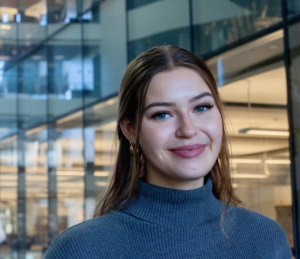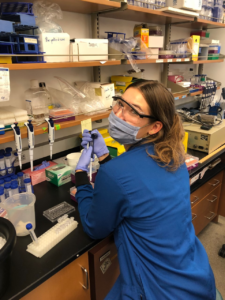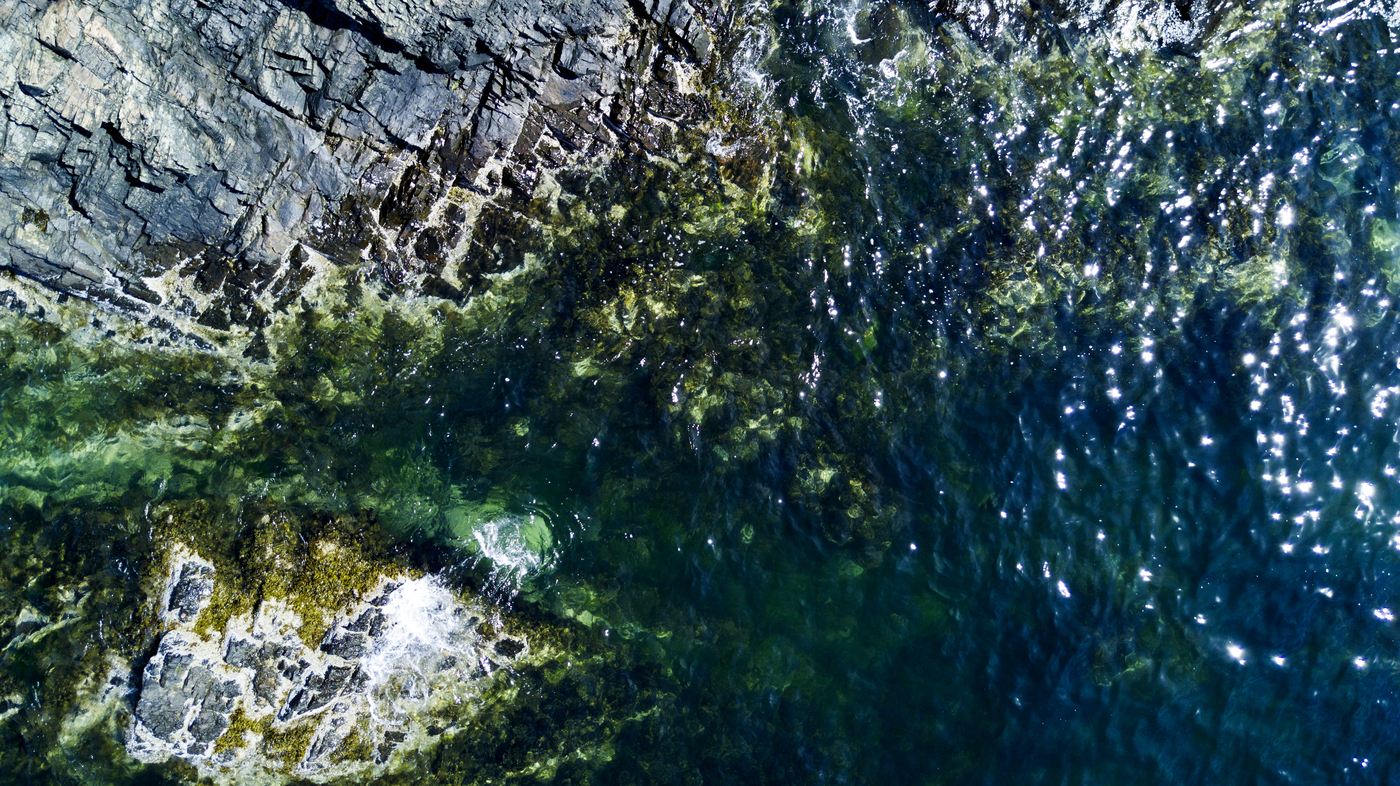 Clara Winguth, a third-year environmental science major, focusing on marine conservation with minors in biology and environmental studies, is currently on co-op as a STEM intern at the International School of Bremen in Germany. This experience combines aspects of her multifaceted identity, connecting her love of science with tutoring skills in her ancestral homeland.
Clara Winguth, a third-year environmental science major, focusing on marine conservation with minors in biology and environmental studies, is currently on co-op as a STEM intern at the International School of Bremen in Germany. This experience combines aspects of her multifaceted identity, connecting her love of science with tutoring skills in her ancestral homeland.
This week, Winguth will give us an inside look at her experience living at the German boarding school she co-ops at, teaching science to young students, performing her lab duties, and enjoying the simple activities of everyday life. Follow along!
Winguth made various decisions at The College of Science that led her to Germany, including pursuing an independent education track, an initial co-op with a start-up platform, and membership in multiple clubs.
“My first year at Northeastern, I was jumping around clubs a bit and still trying to find my footing in the school, which was then also partially interrupted by COVID-19,” says Winguth.
She customized her course load to best support her interests. After reviewing the concentrations offered for environmental science majors, she decided to pursue an independent track rather than choosing a pre-established one. With this, she has customized her course of study around her specific interest in marine conservation.
During the spring of her second year, she began her first co-op at SeaAhead Bluetech Innovation, a platform used by startups to build their companies in the ocean sustainability space. SeaAhead works with Bluetech startups to accelerate their growth through a network of mentors, service providers, and investors. They also have a bluetech startup incubator called Blueswell in collaboration with the New England Aquarium, where they foster the creation and growth of bluetech startups.
Winguth’s primary role during her co-op experience included tracking Bluetech startups from across the globe and inputting them into a database, as well as inviting them to events. She also cumulated market research on seaweed, looking into various sustainable applications of macroalgae for consumption and industrial purposes.
Clara was able to gain valuable insight through this co-op by learning how her environmental science major had growing applications in the world today. After eye-opening introductions to the newest sustainable innovations, she was more inspired than ever to further the scientific knowledge needed to address climate change.
Around the same time she started this co-op, Winguth joined Northeastern’s Peer Tutoring Program. As a peer tutor, she assists fellow students with their work, focusing mainly on organic chemistry courses.
“I’ve been doing this for a year now as a side job, and I’m enjoying it. I’ve had quite a few regulars, and it’s gratifying to see them develop and gain more confidence in the subject. This experience has also solidified my interest in a teaching career eventually, potentially as a professor researching on the side.”
 After completing this first co-op, Winguth jumped right into an internship at the Northeastern Marine Science Center under the leadership of Marine and Environmental Sciences Professor Emeritus Dr. H. William Detrich. Detrich’s evolutionary microbiology lab conducts research on Antarctic ice fish. This research includes exploring their unique lacking of red blood cells—a trait that was once believed to help them adapt to extreme climates, but has since been viewed as a reactionary survival method to a genetic accident.
After completing this first co-op, Winguth jumped right into an internship at the Northeastern Marine Science Center under the leadership of Marine and Environmental Sciences Professor Emeritus Dr. H. William Detrich. Detrich’s evolutionary microbiology lab conducts research on Antarctic ice fish. This research includes exploring their unique lacking of red blood cells—a trait that was once believed to help them adapt to extreme climates, but has since been viewed as a reactionary survival method to a genetic accident.
Working with Maggie Streeter, Detrich’s PhD student at that time, she explored how climate change—mimicked by a heated lab environment– affects the expression of collagen genes in Notothenia coriiceps, a red-blooded relative of the ice fish.
“While we didn’t have time to interpret our results fully,” she says, “this experience was so insanely cool for me because I got to learn a lot of wet lab techniques, including qPCR. Unfortunately, Dr. Detrich retired at the end of 2021, so I can’t continue to work in his lab. Still, I’ll always be grateful for what I learned in this experience, and I’m seriously considering looking for similar opportunities in graduate school and my future career.”
These past experiences led Winguth to her current role as a STEM Intern in Bremen. Though she is working in Germany, classes are taught entirely in English. With 350 students, the school spans from pre-k to grade 12.
“This opportunity sounded appealing to me as I’ve always enjoyed working with kids, and through tutoring already found out I liked teaching, so I figured I would gain even more experience teaching and doing so with a variety of ages,” she says.
Not only is this experience helping her educate others, but it’s also teaching her a lot herself. Environmental science is a major founded upon many combined sciences—biology, chemistry, physics, etc.; tutoring others in these areas has helped strengthen her expertise within the core pillars of her studies.
“I’m enjoying my experience here so far and feel as though I’ve had endless opportunities,” she says. “So far, I’ve spent time all over the place observing different classes, particularly grade six sciences, grade eleven international baccalaureate environmental systems and societies, grade ten math, and grade twelve IB biology.” She also works as a language tutor, using her bilingual skills to help German students strengthen their English.
 “At this point I’m already taking a more active role in the classroom. I’ve spent a lot of time observing different teaching styles and now I’m already discussing lesson plans for Environmental Systems and Societies (ESS), and I have taught a whole lesson in IB Biology which allowed me really see the amount of effort that goes into lesson planning. Additionally, I help a lot with classwork when the students have questions, particularly in 10th grade math,” she elaborates.
“At this point I’m already taking a more active role in the classroom. I’ve spent a lot of time observing different teaching styles and now I’m already discussing lesson plans for Environmental Systems and Societies (ESS), and I have taught a whole lesson in IB Biology which allowed me really see the amount of effort that goes into lesson planning. Additionally, I help a lot with classwork when the students have questions, particularly in 10th grade math,” she elaborates.
This week, Winguth will give us an inside look at her experience living at the German boarding school she co-ops at, teaching science to young students, performing her lab duties, and enjoying the simple activities of everyday life. Follow along!

